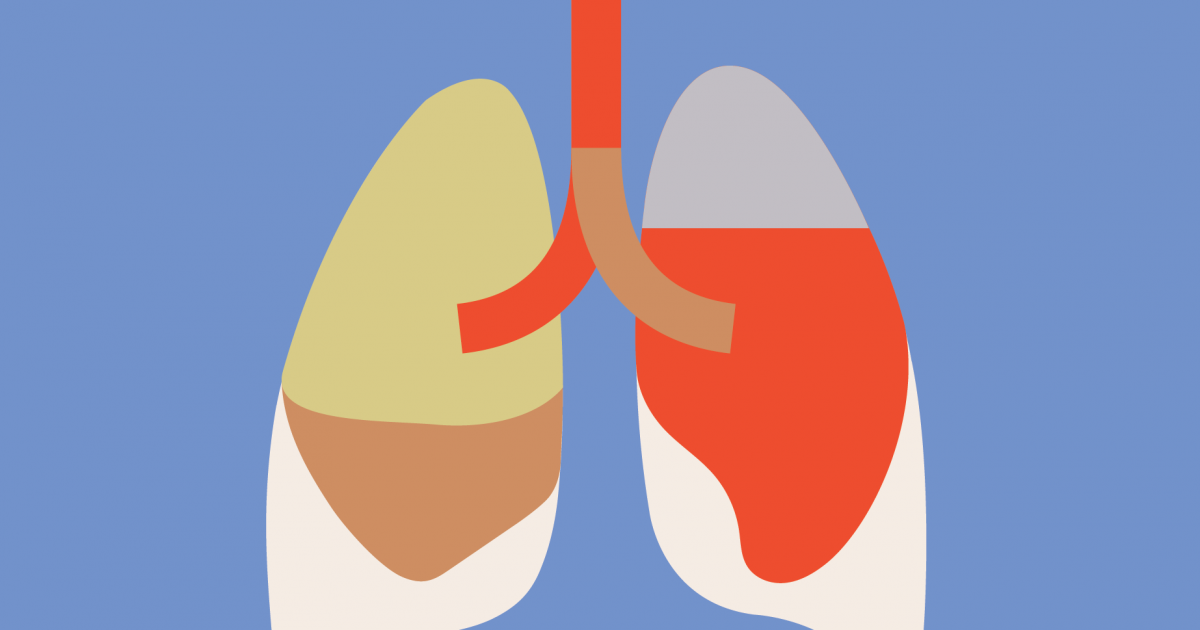Atezolizumab (Tecentriq) is an immunotherapy medication that is FDA-approved to treat non-small cell lung cancer (NSCLC) in several situations. Immunotherapy is a type of cancer treatment that helps your immune system fight cancer. Patients receive atezolizumab through an IV (intravenous) infusion.
How It Works
Atezolizumab is a PD-L1 blocking antibody.
Read More- PD1 or programmed cell death 1 is a protein on the surface of cells in your immune system.
- PD-L1, or programmed cell death ligand, is on the surface of some normal blood cells, as well as some cancer cells.
- When PD-1 binds to PD-L1, the cell stops itself from dying.
- Normally, this acts as a braking mechanism to prevent our immune systems from becoming overactive and going haywire. Cancer cells can take over this mechanism, preventing cancer cells from dying.
“When you have drugs like PD1 inhibitors, nivolumab, pembrolizumab, and atezolizumab …these drugs break the shield of the defenses of the tumor,” Dr. Vamsi Velcheti, director of thoracic medical oncology at NYU Langone's Perlmutter Cancer Center, told SurvivorNet in a previous conversation. “So when you break the defenses of the tumor, your immune system is doing the work and your immune system is quite adept and actually adapting and evolving over time.”
What Happens When You've Been Newly Diagnosed With Lung Cancer
When Is Atezolizumab Approved For Use?
- For treatment after surgery (adjuvant) and chemotherapy in patients whose tumors have PD-L1 expression on at least 1% of tumor cells.
- As a first treatment for cancer that has spread (metastatic) in patients whose tumors have PD-L1 expression on at least 50% of tumor cells, and no EGFR or ALK mutation. (Some people with NSCLC have a gene mutation such as EGFR, or ALK. If you test positive for one of these mutations, there are pills which target these specific mutations and work better than chemotherapy and immunotherapy.)
- With chemotherapy as a first treatment for patients with metastatic disease (but not squamous type) without targetable mutations.
- Patients with metastatic disease who have already progressed on chemotherapy.
Research Supporting the Use of Atezolizumab
If your doctor is recommending atezolizumab for lung cancer that has spread, it means you have a tumor expressing at least 50% PD-L1, without a targetable EGFR or ALK mutation. Studies show improved outcomes compared to chemotherapy alone.
If you have early stage disease and have undergone surgery and chemotherapy, atezolizumab may be recommended to improve disease-free survival, as shown in the Impower010 trial. The Food and Drug Administration approved the drug for this indication based on the trial results which showed that treatment with atezolizumab following surgery and chemotherapy reduced the risk of disease recurrence or death by 34% in people with Stage II-IIIA NSCLC whose tumors express PD-L1≥1%.
However, the trial has not collected data for long enough to show that adding atezolizumab improves overall survival, which is considered the gold standard endpoint for clinical trials in this area. You should ask your doctor your specific treatment risks, as well as your expected benefit when deciding to receive immunotherapy.
What Are the Side Effects?
As with all immunotherapies, there is a chance of side effects specifically related to immune activation, such as pneumonitis (inflammation of the lungs), and colitis (inflammation of the gut).
Other organs such as the liver, kidneys and skin can be affected. If a patient has an autoimmune condition, it may worsen on immunotherapy. Also a patient with an organ transplant on chronic immunosuppressive drugs is at risk of organ rejection while on immunotherapy. These medications are typically avoided in transplant patients for this reason.
“Let’s acknowledge that while most patients have few side effects on immune therapy, there is the potential for very dramatic side effects,” Dr. Oxnard says. “What happens is your immune system wakes up and, and perhaps while it’s attacking the cancer, or instead of attacking the cancer, it starts attacking healthy tissues in the body.”
Other side effects include:
- Infusion-related reactions such as flushing or hives
- Fatigue
- Decreased appetite
- Nausea
- Cough
- Shortness of breath (dyspnea)
These side effects may worsen when combined with chemotherapy. Many patients experience minimal or no side effects and tolerate the medication well.
Immunotherapy Has Changed The Game For Lung Cancer
Questions To Ask Your Doctor
- Does my cancer have a target mutation?
- Am I eligible for targeted therapy?
- Have you checked my cancer's PD-L1 status?
- Does my PD-L1 status enable me to use immunotherapy?
- Is using atezolizumab (Tecentiq) an option for me?
- What side effects should I be concerned with while on atezolizumab?
- If my PD-L1 status doesn't support the use of immunotherapy, what other drugs can I use?
Learn more about SurvivorNet's rigorous medical review process.


